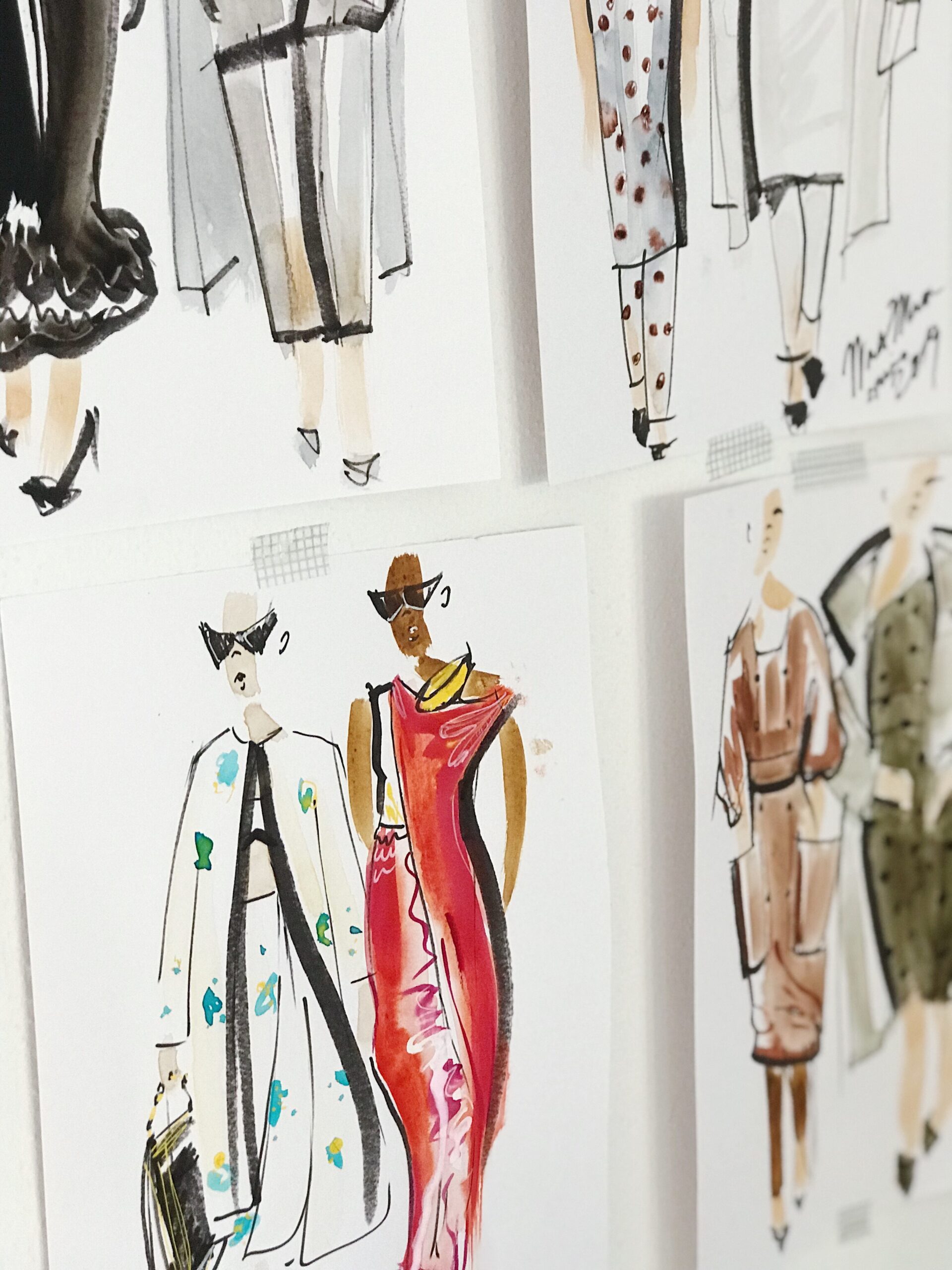The idea of fashion trends dates back hundreds of years, and it captures the changes in personal expression, cultural influences, and social conventions. Examining the past origins of the first fashion trends reveals a diverse array of clothing choices that have influenced human identity and aesthetics from antiquity.
The Beginnings: Expression and Adornment
The origins of fashion trends may be found in prehistoric societies when ornamentation was used to convey rank, identity, and cultural affinities. Ancient Egyptian kings and privileged members of society were decorated with elaborate jewels, elaborate headdresses, and skillfully woven clothes that set a standard for fashion that persisted across time.
Similar to this, wearing clothing composed of pricey materials like silk, linen, and wool in ancient Mesopotamia was a sign of social position and affluence. Timeless drapery designs, vibrant colors, and intricate needlework typified the era’s fashion sensibility.

Ancient Greece and Rome’s influence
Early fashion trends benefited greatly from the work of the ancient Greeks and Romans, who established timeless style features. Greek clothing was designed with an emphasis on simplicity. Draped pieces like as the chiton and himation demonstrated a tasteful fusion of style and utility.
Roman fashion, on the other hand, tended toward grandeur and included luxurious materials, elaborate decorations, and fitted forms. The toga, a traditional Roman garment, changed in function and appearance over time to reflect changes in social rank and fashion preferences.
Medieval Style: Exquisite Grace
During the Middle Ages, there was a change in fashion styles that were marked by intricate patterns, luxurious fabrics, and clear class divisions. Rich textiles, furs, and elaborate needlework were shown by nobility, whereas simpler, more functional clothing made of coarser materials was worn by peasants.
The Renaissance saw the rise of courtly fashion, with European aristocracy establishing trends with ornate dresses, corsets, frills, and elaborate hairstyles. These fashions served as symbols of social standing, money, and refinement.
Revolutions in 18th and 19th Century Fashion
Europe’s fashion patterns underwent tremendous transformation throughout the 18th and 19th centuries. During the 18th century, the Rococo style was all about wealth and excess; elaborate lace, full skirts, and powdered wigs dominated fashion.
Neoclassical fashions that emerged in the late 18th and early 19th centuries brought with them a return to simplicity and classical ideas. Clothes with flowing lines and lighter materials, which contrasted with the opulence of earlier times, were inspired by ancient Greece and Rome.
Revolutions of the 20th Century: The Origins of Modern Fashion
Revolutionary developments in fashion occurred during the 20th century, mostly due to cultural influences, technical breakthroughs, and sociological transformations. With their avant-garde designs and unique aesthetics, the haute couture houses of Paris, including Chanel, Dior, and Givenchy, transformed the fashion industry.

The Roaring Twenties redefined women’s fashion with its flapper dresses, bobbed hairstyles, and daring shapes that heralded a sense of emancipation and defiance against conventional standards. The 1950s saw the emergence of famous looks like the New Look, the 1960s saw the growth of mod fashion, and the 1970s saw the rise of the bohemian hippie movement.
Current Patterns: Diversity and Globalization
Fashion trends have become more diverse and globalized in the 21st century. Social media’s introduction, quick technical developments, and growing interconnection have all contributed to the democratization of fashion and allowed for the blending of personal expressions with cultural influences.
Innovation, sustainability, diversity, and inclusion are all embraced by current fashion trends. Many cultures, subcultures, and movements serve as sources of inspiration for designers and companies, resulting in a melting pot of designs that appeal to a wide range of consumers worldwide.







+ There are no comments
Add yours